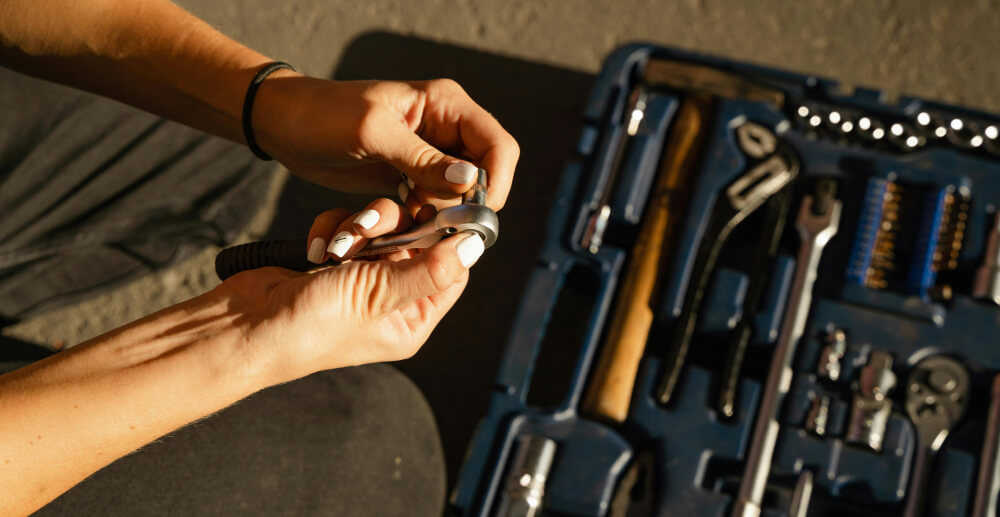How important is helping others in addiction recovery? And what exactly should it look like?
“When you express your unique talents and use them in the service of humanity, you create abundance in your life and the lives of others.”
We’re often told that the act of service is a crucial aspect of our recovery; it’s referred to as a pillar of sustainable recovery. But does it mean that if we don’t make each other coffee at a meeting, or sponsor one another, that we’re not fulfilling our obligation? And, consequently, will our recovery suffer?
For the first three years of my recovery I dutifully held several service positions—from making coffee, setting up meetings, looking after literature, chairing meetings, and acting as a treasurer. There’s no question I wholeheartedly gave back within the 12-step paradigm—where I initially recovered. However, when I ceased these positions I was criticized for my lack of service and was told that my recovery would suffer.
Around the two-year sober mark, I started my website Liv’s Recovery Kitchen. I saw it as a cathartic exercise, as well as an opportunity to provide resources for others like me, who wanted to look after their bodies and form a holistic approach to recovery. I spent hundreds of hours on this site, and it quickly became a popular resource for others in recovery. But I still had this nagging feeling that I wasn’t doing enough, because of what I’d been conditioned to believe.
That nagging feeling stayed with me for a long time, until my website, together with my advocacy and changing perspectives on recovery, became my full-time job. I now have no qualms that my service to people in recovery is the writing I do, the information I provide, and my advocacy work.
Curious to explore this topic and alternate perspectives, I asked friends and those who work in the recovery industry for their views.
“Service is the rent you pay for your space on earth, regardless of how you define your recovery”
Social worker, Adam Sledd, says: “Service in Recovery has been overemphasized through a combination of the Christian idea of service contained in the 12-step program and the version of stigma which says that people in recovery owe a debt to society for their transgressions. I think in modern, strength-based recovery, service is decidedly optional. Normal people do service too, and certainly volunteerism is beneficial to everyone.”
I think he’s right. There is a strong belief that we’re indebted to the modality that helped us get sober and that we must give back. This simply isn’t true. I take issue with the belief that service is such a crucial part of recovery that if omitted, we risk our continuing sobriety. I think that’s nonsense. That’s not to say I don’t see its benefit—I do—I just disagree with the notion that we have to do service to maintain recovery.
I, like many others who commented on my post, agree with the wider view that service is an act that is beneficial to anyone—in and outside recovery. There is no doubt that giving back feels good. It helps others less fortunate, it gives us perspective, and it takes us out of our heads that have a propensity to be a little self-centered—like anyone else in this world.
My good friend, Jules, went a step further. She says: “Service is the rent you pay for your space on earth, regardless of how you define your recovery.”
I just wonder how many of us are aware of the service we already give, in an unofficial capacity.
From my questions, it became clear that some do have a broader view of what service looks like. Some say it is their showing up for family, their community, and themselves while sober. For others, that includes providing yoga classes, or writing an online blog packed with resources, managing an online recovery community, or hosting sober events, and for some it includes sponsorship or just checking in on another human being and asking how they are.
“Many of us already take part in small acts of service every single day.”
What’s more, some of our jobs are service-based, like nursing, providing therapeutic services, or coaching, too. Do we as a community acknowledge these as service? I think we should—especially when someone is dictating what service should look like.
I am firmly of the view that service is beneficial, but it isn’t a crucial aspect of recovery. Many of us already take part in small acts of service every single day. It is for us to define what we want to give, and if that is something we want to do. As a compassionate human, I want others to thrive in recovery, so if service helps, then I say by all means do it. But I do believe that we shouldn’t feel obliged to and we shouldn’t compromise our own needs in order to fulfill someone’s expectations of us.




